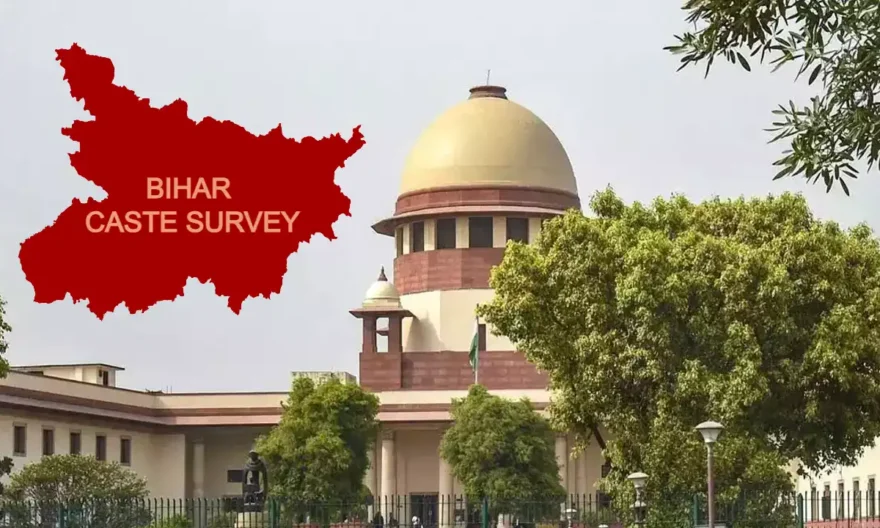
The Supreme Court on Tuesday said that it will hear pleas challenging the Patna High Court’s August 1 order to proceed with a caste survey in Bihar on October 6.
A bench comprising Justice Sanjiv Khanna and Justice SVN Bhatti informed Solicitor General Tushar Mehta that it has listed the pleas for hearing. The bench made the remark after SG Mehta sought adjournment in a separate matter related to the Haryana State Industrial and Infrastructure Development Corporation Ltd and requested it be listed for Friday.
On 2nd October, the Nitish Kumar government in Bihar released the results of a much-anticipated caste survey several months ahead of the 2024 Parliamentary elections. The survey revealed that Other Backward Classes (OBCs) and Extremely Backward Classes (EBCs) make up a significant 63 percent of the state’s total population.
According to the data, Bihar’s total population was just over 13.07 crore, with EBCs constituting the largest social segment at 36 percent, followed by Other Backward Classes at 27.13 percent. The survey also indicated that Yadavs, an OBC group to which Deputy Chief Minister Tejashwi Yadav belongs, had the largest population share at 14.27 percent of the total.
Dalits, also known as Scheduled Castes, accounted for 19.65 percent of the total population in the state, which also included nearly 22 lakh (1.68 percent) individuals belonging to Scheduled Tribes.
On September 6, the Top Court deferred the hearing on pleas challenging the Patna High Court’s August 1 order allowing the caste survey in Bihar until October 3. On August 7, the Supreme Court had declined to stay the Patna High Court’s order and deferred the hearing on petitions challenging it to August 14.
Apart from a plea filed by the NGO ‘Ek Soch Ek Paryas,’ several other petitions have been submitted, including one by Akhilesh Kumar from Nalanda. He argued that the notification issued by the state government for the survey goes against the constitutional mandate, which only empowers the Union government to conduct a census.
In its 101-page verdict, the high court declared, “We find the action of the state to be perfectly valid, initiated with due competence with the legitimate aim of providing development with justice.” Following the high court’s ruling on the validity of the caste survey, the state government suspended all ongoing teacher training programs to engage them in completing the survey promptly.
On August 25, the Nitish Kumar government announced that the survey had been completed, and the data would be made public soon. Senior advocate C.S. Vaidyanathan, representing one of the petitioners, opposed the public release of the data, contending that it would infringe upon people’s right to privacy.




